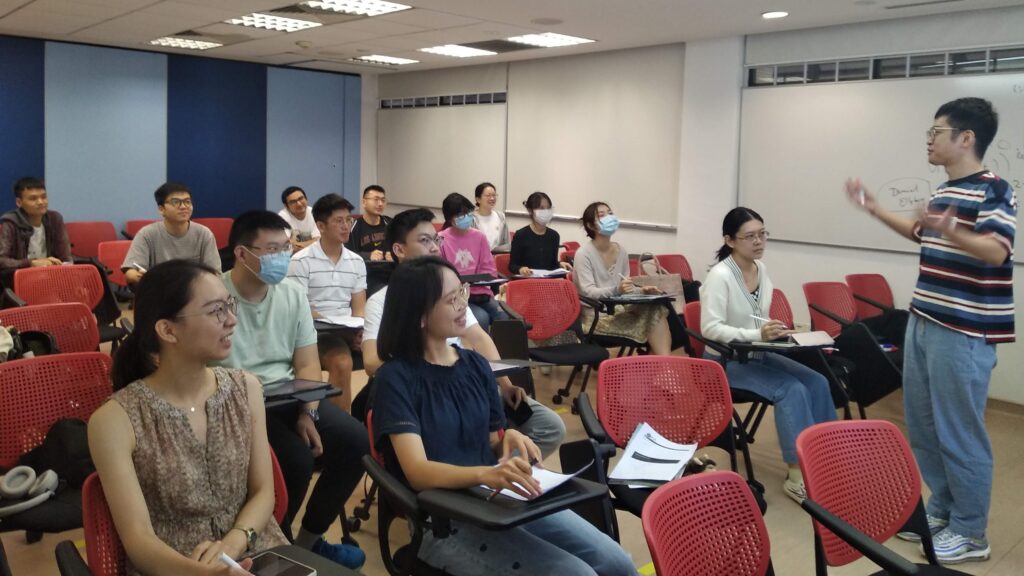Doctor of Philosophy (Economics)
The Economics Department at NUS is recognized as a world leading department (ranking 1st in Asia and among the top 20 in the world). We have more than 50 faculty members whose areas of expertise span all the major areas in economics, including microeconomic theory, macroeconomics, econometrics, behavioral and experimental economics, development economics, economic history, environmental economics, industrial organization, international trade and finance, labor economics, political economy, and public economics.
Although we are a large department, we have a strong community culture that emphasizes close interactions between students and faculty members. Our students have access to regular discussions, workshops, and seminars with faculty and fellow students sharing similar interests. We also have internal seminars where students can present their work and receive feedback, so they may develop their research ideas and acquire essential skills for the job market.
The PhD program admits 10–15 students each year. For admission, a student should have a good undergraduate honors degree (first class or high second upper class equivalent) or a master’s degree, either in economics or another quantitative subject (such as mathematics, statistics, physics, engineering, or operations research). The Application Procedures tab has more detailed admissions information.
All students who are admitted to the program can expect full financial support (covering both fees and living expenses) for five years. This support is conditional on satisfactory academic progress and will typically require some teaching duties. Funding in the first four years comes in the form of NUS Research Scholarships, and the fifth year’s funding comes from the department. The department also provides each student with a generous research allowance that can be used for overseas travel and other research purposes.
Graduates of the NUS doctoral program go on to establish promising careers both within and outside academia.

To encourage good teaching among graduate students, the Faculty of Arts and Social Sciences gives out Graduate Student Teaching Awards each semester. One of the winners for the first semester of the 2023-2024 academic year is Zheng Zhongxi, who joined our doctoral program in 2022. Zhongxi is from Shenzhen, China; his research is in macroeconomics. |

Teh Tat-How completed his doctoral studies in 2019 and stayed on as a postdoctoral research fellow. His research focuses on platform and digital economics, and industrial organization more generally. He joined the Nanyang Technological University (NTU Singapore) as an assistant professor in economics in August 2023. Before that, he worked at the Chinese University of Hong Kong at Shenzhen. |



